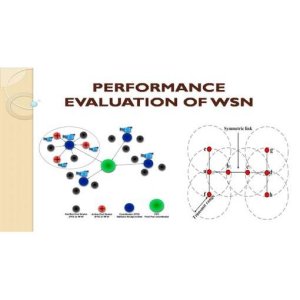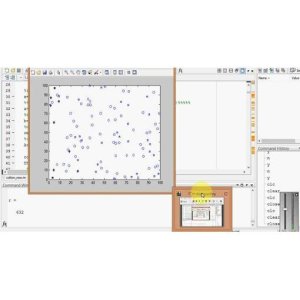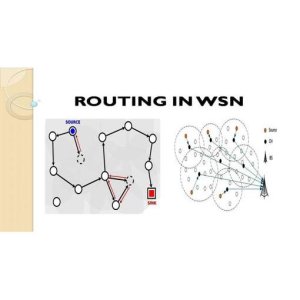Evaluating Node Consideration in Random and Trust-Based Route Finding for Enhanced Wireless Network Security and Reliability
Problem Definition
Wireless sensor networks play a crucial role in various applications, from environmental monitoring to healthcare and industrial automation. However, the lack of robust mechanisms for selecting trust-based paths during data transmission poses a significant threat to the security of these networks. The absence of reliable methods to assess the trustworthiness of communication paths leaves WSNs vulnerable to security breaches and unauthorized access, jeopardizing the integrity and confidentiality of the data being transmitted. This creates a pressing need for innovative solutions that can evaluate the trustworthiness of potential communication paths based on factors such as node reputation, past behavior, and network conditions.
By failing to address this challenge, WSNs risk compromising the availability of critical information and exposing sensitive data to malicious actors.
Developing sophisticated algorithms and protocols that can effectively determine trustworthy routes is essential for enhancing the security of wireless sensor networks and ensuring the safe and reliable transmission of data. The limitations and problems associated with the current state of WSNs highlight the urgent need for research and innovation in this domain to mitigate the risks posed by inadequate trust-based path selection mechanisms.
Objective
The objective of this project is to address the critical issue of trust-based path selection in wireless sensor networks (WSNs) in order to enhance data security. By implementing a trust-based routing mechanism that categorizes nodes as trusty or non-trusty based on their reputation and behavior, the project aims to improve data security, minimize unauthorized access, and enhance the overall reliability of the network infrastructure. Through a two-phase operation involving initial user input and route determination, the project will compare traditional random routing with innovative trust-based routing approaches using MATLAB code to analyze the effectiveness of each method. The goal is to provide valuable insights into enhancing data security, reliability, and resilience in wireless sensor networks by identifying and addressing the research gap in robust mechanisms for determining the trustworthiness of communication paths.
Proposed Work
This project aims to address the critical issue of trust-based path selection in wireless sensor networks (WSNs) to enhance data security. The existing literature reveals a research gap in robust mechanisms for determining the trustworthiness of communication paths, leading to potential security vulnerabilities. By implementing a trust-based routing mechanism, the project seeks to improve data security, minimize unauthorized access, and enhance the overall reliability of the network infrastructure. The proposed work involves the deployment of a route finding system within wireless communication networks, focusing on categorizing nodes as trusty or non-trusty based on their reputation and behavior. With a two-phase operation of initial user input and route determination, the project explores both traditional random routing and innovative trust-based routing approaches to optimize data security and mitigate risks.
Utilizing MATLAB code, the project will analyze and compare the effectiveness of random and trust-based routing methodologies by quantifying the number of nodes involved in each scenario. Through a comprehensive evaluation of the performance characteristics and suitability of each approach, the project aims to provide valuable insights into enhancing data security, reliability, and resilience in wireless sensor networks. By extensively researching existing literature and identifying the research gap, the project rationalizes the selection of trust-based routing mechanisms to address the pressing challenge of enhancing data security in wireless sensor networks. With a detailed approach and utilization of sophisticated algorithms, the project intends to contribute valuable knowledge and insights to the field of network infrastructure security and data transmission.
Application Area for Industry
This project's proposed solutions can be applied across various industrial sectors such as healthcare, finance, manufacturing, and transportation, where data security and integrity are paramount. In healthcare, for instance, the trust-based routing system can ensure the secure transmission of patient information between medical devices and databases, safeguarding sensitive data from unauthorized access. In the finance sector, the system can be utilized to protect financial transactions and client data, reducing the risk of cyber threats and fraud. For manufacturing industries, implementing trust-based routing can enhance the security of production data and control systems, preventing potential disruptions in operations. In transportation, the system can secure communication between vehicles and infrastructure, ensuring reliable and safe connectivity for autonomous vehicles and smart transportation systems.
By addressing the challenge of selecting trustworthy routes in wireless communication networks, this project offers numerous benefits to industries. The trust-based routing approach enhances data security by prioritizing paths through trusty nodes, reducing the likelihood of security breaches and unauthorized access. This results in improved confidentiality, integrity, and availability of critical information exchanged within the network. Furthermore, the project's focus on evaluating the effectiveness of different routing methodologies provides valuable insights into optimizing routing decisions, leading to enhanced network performance and efficiency. Overall, the implementation of this project's solutions can strengthen data protection measures, mitigate security risks, and support the smooth operation of industrial processes across diverse sectors.
Application Area for Academics
The proposed project has the potential to enrich academic research, education, and training in the field of wireless sensor networks and data security. By addressing the critical challenge of selecting trust-based paths for data transmission, the project offers valuable insights into enhancing network security and reliability. Researchers in the field of network security can leverage the project to develop innovative algorithms and protocols for evaluating the trustworthiness of communication paths.
The project's focus on route finding systems and trust-based routing methodologies can serve as a valuable educational resource for students pursuing studies in communications engineering, data security, and network protocols. The project's use of MATLAB code for processing and analyzing routes provides a practical learning experience for students interested in implementing algorithms and conducting data analysis in network environments.
Furthermore, MTech students and PhD scholars can utilize the code and literature from this project as a foundation for their research work. They can explore advanced algorithms, simulations, and data analysis techniques to further enhance the trust-based routing system and improve network security measures. By building upon the project's findings, researchers can contribute to the development of cutting-edge solutions for securing wireless communication networks.
In terms of future scope, the project can be expanded to incorporate machine learning algorithms for predictive analysis of node behavior and trustworthiness. Additionally, the project can explore the integration of blockchain technology for enhancing data security and establishing secure communication paths within wireless sensor networks.
Such advancements will not only contribute to academic research but also have practical applications in real-world network deployments.
Algorithms Used
Random Routing: In the context of this project, the Random Routing algorithm provides a fundamental approach for selecting routes within wireless communication networks. This algorithm operates by randomly choosing a path from the source to the destination node, without considering any additional parameters or characteristics of the network nodes. The Random Routing algorithm plays a crucial role in the project by serving as a benchmark methodology for route determination, enabling the comparison of its performance against the trust-based routing approach. Through the implementation of the Random Routing algorithm, the project aims to evaluate the efficiency of this conventional method in terms of data transmission, node utilization, and reliability within the network infrastructure.
Trust-Based Routing: The Trust-Based Routing algorithm introduces a novel methodology that prioritizes paths relying on trustworthy nodes within the wireless communication network.
By assigning higher priority to routes traversing trusty nodes, this algorithm aims to enhance data security, minimize potential vulnerabilities, and improve overall network reliability. The Trust-Based Routing algorithm plays a significant role in the project by offering an innovative approach to route selection, which can potentially optimize data transmission efficiency and mitigate risks associated with non-trusty nodes. Through the rigorous analysis of routes determined using the Trust-Based Routing algorithm, the project aims to assess the comparative advantages and performance gains achieved by considering trust levels in the routing process.
Keywords
SEO-optimized keywords: wireless sensor networks, trust-based path selection, data security, communication paths, trustworthiness evaluation, node reputation, network conditions, route finding system, data reliability, trusty nodes, non-trusty nodes, route determination, random route selection, node finding algorithms, trust-based routing approach, data security optimization, MATLAB code, routing scenario analysis, network environment, performance characteristics, trust metrics, network trust models.
SEO Tags
wireless sensor networks, data security, trust-based path selection, communication paths, trustworthiness evaluation, node reputation, network conditions, route finding system, data reliability, trusty nodes, non-trusty nodes, source nodes, destination nodes, routing methodologies, random route selection, trust-based routing approach, data security optimization, MATLAB code, routing analysis, performance characteristics, network environment, wireless networks, node consideration, network evaluation, routing protocols, network reliability, trust metrics, node trustworthiness, network trust models.
| Shipping Cost |
|
No reviews found!



















































No comments found for this product. Be the first to comment!